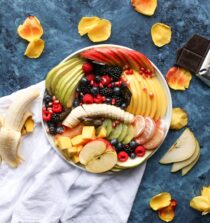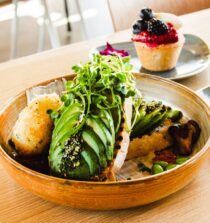The 1500 calorie plan is a widely adopted approach for weight management and health improvement. This dietary regimen involves consuming approximately 1500 calories daily, which is considered a moderate intake for most adults. Individual calorie requirements vary based on factors such as age, sex, weight, height, and physical activity level.
For many individuals, a 1500 calorie plan can create an energy deficit leading to weight loss while providing sufficient energy for daily activities and overall well-being. Typically, the 1500 calorie plan consists of three main meals and two to three snacks distributed throughout the day. These meals and snacks should be balanced in macronutrients (carbohydrates, proteins, and fats) and include a diverse range of nutrient-dense foods such as fruits, vegetables, whole grains, lean proteins, and healthy fats.
The focus should be on the nutritional quality of the calories consumed rather than solely on quantity. By selecting nutrient-dense foods, individuals can ensure adequate intake of essential vitamins, minerals, and other crucial nutrients while adhering to their calorie limit.
Key Takeaways
- The 1500 Calorie Plan is a balanced approach to weight management and can be tailored to individual needs and preferences.
- Planning meals and snacks in advance can help ensure that you stay within your calorie limit and make healthier choices.
- Incorporating nutrient-dense foods such as fruits, vegetables, lean proteins, and whole grains can help you meet your nutritional needs while staying within your calorie limit.
- Balancing macronutrients, such as carbohydrates, proteins, and fats, can help you feel satisfied and maintain energy levels throughout the day.
- Managing portion sizes is important for staying within your calorie limit and preventing overeating, and using smaller plates and measuring utensils can help with this.
Planning Your Meals and Snacks
When following a 1500 calorie plan, it is essential to plan meals and snacks ahead of time to ensure that you are meeting your nutritional needs while staying within your calorie limit. Start by creating a weekly meal plan that includes a variety of nutrient-dense foods such as fruits, vegetables, whole grains, lean proteins, and healthy fats. Aim to include a source of protein with each meal and snack to help keep you feeling full and satisfied throughout the day.
Additionally, include plenty of fiber-rich foods to support digestion and promote feelings of fullness. For breakfast, consider options such as oatmeal with fresh fruit and nuts, Greek yogurt with berries and granola, or whole grain toast with avocado and eggs. For lunch and dinner, focus on filling half of your plate with non-starchy vegetables, a quarter with lean protein such as chicken, fish, or tofu, and a quarter with whole grains or starchy vegetables like sweet potatoes or quinoa.
For snacks, opt for options like fresh fruit with nut butter, vegetable sticks with hummus, or a small handful of nuts and seeds. By planning your meals and snacks in advance, you can ensure that you are making smart food choices that support your overall health and well-being.
Incorporating Nutrient-Dense Foods

Incorporating nutrient-dense foods into your 1500 calorie plan is essential for meeting your nutritional needs while managing your weight. Nutrient-dense foods are those that provide a high amount of vitamins, minerals, and other important nutrients relative to their calorie content. These foods include fruits, vegetables, whole grains, lean proteins, and healthy fats.
By focusing on nutrient-dense foods, you can ensure that you are getting the essential nutrients your body needs without consuming excess calories. Fruits and vegetables are excellent choices for adding nutrients to your diet while keeping calories in check. They are rich in vitamins, minerals, fiber, and antioxidants that support overall health.
Whole grains such as quinoa, brown rice, and oats provide fiber, B vitamins, and other important nutrients. Lean proteins like chicken, turkey, fish, tofu, and legumes are essential for muscle repair and growth. Healthy fats from sources like avocados, nuts, seeds, and olive oil provide essential fatty acids that support heart health and overall well-being.
By incorporating these nutrient-dense foods into your 1500 calorie plan, you can ensure that you are meeting your nutritional needs while managing your weight effectively.
Balancing Macronutrients
| Macronutrient | Recommended Intake | Calories per gram |
|---|---|---|
| Carbohydrates | 45-65% of total calories | 4 |
| Protein | 10-35% of total calories | 4 |
| Fat | 20-35% of total calories | 9 |
Balancing macronutrients is an important aspect of the 1500 calorie plan. Macronutrients include carbohydrates, protein, and fat, all of which play essential roles in the body. When planning your meals and snacks on a 1500 calorie plan, it is important to ensure that you are getting the right balance of these macronutrients to support overall health and well-being.
Carbohydrates are the body’s primary source of energy and should make up about 45-65% of your total calorie intake. Focus on including complex carbohydrates from sources like whole grains, fruits, and vegetables rather than simple carbohydrates from refined sugars and processed foods. Protein is essential for muscle repair and growth and should make up about 10-35% of your total calorie intake.
Include lean sources of protein such as chicken, fish, tofu, and legumes in each meal and snack to support muscle health. Fat is important for hormone production, nutrient absorption, and overall health and should make up about 20-35% of your total calorie intake. Choose healthy fats from sources like avocados, nuts, seeds, and olive oil to support heart health and overall well-being.
By balancing these macronutrients in your 1500 calorie plan, you can ensure that you are getting the right mix of nutrients to support your health goals.
Managing Portion Sizes
Managing portion sizes is crucial when following a 1500 calorie plan. Even when consuming nutrient-dense foods, it is still possible to overeat if portion sizes are not controlled. It is important to be mindful of portion sizes to ensure that you are staying within your calorie limit while still feeling satisfied and nourished.
One way to manage portion sizes is to use measuring cups and food scales to accurately portion out foods. This can help you become more aware of appropriate serving sizes and prevent overeating. Another helpful strategy is to fill half of your plate with non-starchy vegetables, a quarter with lean protein, and a quarter with whole grains or starchy vegetables.
This visual guide can help you control portion sizes while ensuring that you are getting a balanced mix of nutrients. Additionally, paying attention to hunger and fullness cues can help you avoid overeating. Eat slowly and mindfully, paying attention to how your body feels throughout the meal.
By managing portion sizes effectively on your 1500 calorie plan, you can ensure that you are meeting your nutritional needs while managing your weight.
Making Smart Food Choices

Making smart food choices is essential for success on a 1500 calorie plan. When following this plan, it is important to focus on nutrient-dense foods that provide essential vitamins, minerals, and other important nutrients without exceeding your calorie limit. By making smart food choices, you can ensure that you are meeting your nutritional needs while managing your weight effectively.
Choose whole foods over processed foods whenever possible. Whole foods such as fruits, vegetables, whole grains, lean proteins, and healthy fats provide essential nutrients without added sugars, unhealthy fats, and excessive calories. Opt for fresh or frozen fruits and vegetables rather than canned options that may contain added sugars or sodium.
Choose lean proteins like chicken, fish, tofu, and legumes over processed meats like bacon or sausage. Select whole grains like quinoa, brown rice, oats, and whole grain bread over refined grains like white rice or white bread. By making smart food choices on your 1500 calorie plan, you can ensure that you are getting the essential nutrients your body needs while managing your weight effectively.
Staying Consistent and Flexible
Staying consistent with your 1500 calorie plan is key to achieving success in managing your weight and improving your overall health. Consistency involves sticking to your meal plan and making smart food choices day in and day out. However, it is also important to be flexible and adaptable as needed.
Consistency means following your meal plan as closely as possible each day to ensure that you are meeting your nutritional needs while staying within your calorie limit. This may involve meal prepping in advance or making smart choices when dining out or traveling. However, it is also important to be flexible when life throws unexpected challenges your way.
If you have a special event or celebration coming up, allow yourself some flexibility in your meal plan to enjoy the occasion without guilt or stress. If you find that certain foods or meal timings don’t work for you, be open to making adjustments as needed to find a plan that is sustainable for the long term. By staying consistent with your 1500 calorie plan while also being flexible as needed, you can achieve success in managing your weight and improving your overall health.





